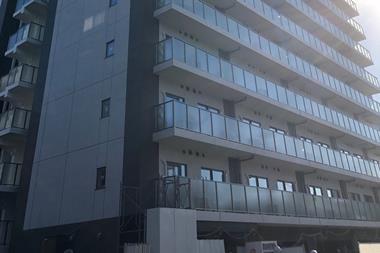We see a refocus on Europe-specific markets; investors show a preference for German commercial; Belgium makes a blip on the radar, and Asia's further interest is shown in strategic potential
Recent fund activity has witnessed a slight shift from pan-European euphoria towards specific European market euphoria - with the emphasis not on emerging Europe but on squeezing more out of mature markets.
Not that pan-Europhilia has been lacking. Fund manager Schroder will in September see the first closing of its second continental Europe fund - just in time for former ABP real estate portfolio manager Rob Bingen to assume directorship of the firm's real estate multi-manager funds.
AP3, the €23m Swedish public pension fund, has lost little of its appetite for European real estate since last December, when it appointed Aberdeen Property Investors to build a €221m pan-European portfolio. AP3's aim was to decrease risk in its property portfolio by increasing the weight of international holdings to around 50%. It came with a four-year strategy that involved planned investment in around 10 property funds.
Likewise, the newly-launched €7.5bn ProLogis European Properties (PEPR) fund II, which recently gained the €83.5bn Canada Pension Plan (CPP) as an investor because it covered pan-European real estate in an attractive asset sub-class - logistics. That some of its assets are in one European market, and others in another was of minimal interest to the scheme: that all were stable, long-term assets was.
Europe's largest market
Yet other fund offerings are showing greater differentiation between European markets than previously.
For UK pension funds, Germany is a home from home. Having exited their domestic real estate market en masse, they've headed for Berlin and other major German cities. According to Jones Lang LaSalle, they invested €4.7bn there in the first half of 2007, compared with €3.7bn in the first half of 2006.
But it is not just Brits on the move. For other investors, too, German commercial is taking over where residential left off. In April ABP and Danish pension fund ATP struck a joint venture agreement with German real estate firm Patrizia Immobilien for a combined investment of €700m in German office. Under the agreement, ABP and ATP are contributing €60m each, with each pledging a further €40m.
"It's going according to plan," says Ville Ratio, investment manager at ATP Ejendomme, the €55.6bn pension fund's real estate subsidiary. He says that, despite Patrizia's past strength in residential, it has built expertise in commercial.
Although ATP's emphasis to date has been on commercial, Raitio has not ruled out expanding into other segments. "There's nothing wrong with residential but we made the decision to start off with one focus," he says. "It's a question of finding the right portfolio and we haven't - yet. We need to be careful. It isn't about targeting a specific sector, but about the overall quality of the portfolio."
Fries with mayonnaise
Belgian real estate, though considerably less attractive than the German variety, entered pension funds' consciousness via the ING Real Estate European Office Fund's acquisitions of two prime Brussels office buildings. The acquisitions were significant not only because (even off-market) opportunities are not overwhelmingly available in the capital but because they were for a fund that has taken until now to gain any kind of momentum.
Although the firm said it had been "looking there for years", Brussels had less appeal for ABP real estate portfolio manager Robert-Jan Foortse. The fund recently acquired three upmarket Brussels hotels in a joint venture with a sector specialist but Foortse makes it clear that it was the asset class - not the hotels' location - that made them investible.
"It's a mere coincidence that they're in Belgium - it just happened that way," he says. "We have no strong view either way about Belgium, neither positive, nor negative."
The pension scheme's focus is rigorously pan-European. "We are definitely interested in expanding the portfolio into other countries as well," says Foortse.
"We would typically take a look at all opportunities that come up."
The risky road east
Fund managers retain some appetite for Asian real estate - though it's becoming more sophisticated and more nuanced. A fund due for launch by Lasalle Investment Management, for instance, will offer a core take on an asset category that has in the past ranked fairly high up the risk profile. Moreover, the firm expects further launches by other fund managers of core and core+ vehicles.
The €23m AP3 Swedish public pension fund is working towards investment in Asian real estate as part of its four-year plan to invest equally across different regions. The Asian scheme is still working through advisory agreements that will allow that to happen. It comes with a shift to what Bengt Hellström, head of alternatives at the scheme, describes as "a more strategic focus". The scheme's focus is on core and core-plus. Under the agreement, Aberdeen will be responsible for sourcing, evaluation and investment recommendations.
"We'll make the final decisions and we'll have full control of the investments," says Hellström. "It would be an exception were we not to accept their recommendation - usually because of tax or legal issues. They're well aware of our strategy."
He adds: "We're still positive about Asia. There have been no changes with regard
to that."












